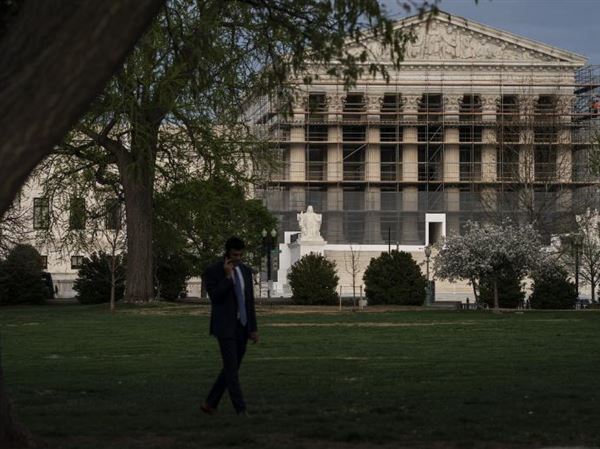WASHINGTON — Supreme Court justices sparred over the rights of pregnant workers as they weighed the case of a former United Parcel Service driver who left her job after her doctor recommended she not lift heavy items.
In an hour-long argument in Washington Wednesday, the justices considered whether expectant mothers must be offered light-duty assignments on the same basis as workers who have similar physical limitations for other reasons.
The session hinted at the ideological and gender divides that have been present in other high court cases affecting women’s rights. Justices Antonin Scalia and Samuel Alito both suggested they might reject the worker’s suit against UPS.
On the other side was Justice Elena Kagan, who said the law “was supposed to be about removing stereotypes of pregnant women as marginal workers.”
Justice Kagan pressed for what she called a “middle ground” interpretation of a 1978 pregnancy anti-discrimination law that might send the case back to a lower court for more study. Under Justice Kagan’s approach, an employer would have a chance to show at trial that it had a legitimate reason for offering light-duty work only to other employees who weren’t pregnant.
Justices Ruth Bader Ginsburg and Stephen Breyer joined their fellow Democratic appointee Justice Kagan in aiming skeptical questions at UPS’s lawyer, Caitlin Halligan.
Ms. Halligan argued that Justice Kagan’s suggestion couldn’t be squared with the statute’s language. She urged the court to leave intact a federal appeals court ruling that threw out the lawsuit by Peggy Young.
Ms. Young worked at a UPS facility in Landover, Md. Her job required her to load packages onto vehicles and deliver them to their destination. Although she says the vast majority of those packages were envelope-size, her job description required her to lift parcels of up to 70 pounds.
In 2006, Ms. Young became pregnant after in vitro fertilization, and her doctor and midwife said she shouldn’t lift objects weighing more than 20 pounds during the first half of the pregnancy or more than 10 pounds for the rest.
She says UPS refused to accommodate her needs either by adjusting her job to a position that didn’t require heavy lifting. She went on an unpaid leave of absence and returned to work after her baby was born. She later left UPS. Ms. Young, now 42, sued the company for compensation, claiming it had violated the Pregnancy Discrimination Act. Two lower courts ruled against her.
UPS says it was simply abiding by its seniority system and union contract, which makes no provision for pregnant employees with physical limitations. The union agreement called for reassignments to be available to workers with job-related injuries and those considered permanently disabled under the Americans With Disabilities Act.
The accord also made provisions for people who lost their federal driver’s certification, letting them temporarily take jobs that don’t involve operating a vehicle.
The Atlanta-based delivery company shifted its policy after the Supreme Court agreed to hear the case. UPS says that starting on Jan. 1 it will treat pregnant employees with restrictions the same as workers with on-the-job injuries, giving them light-duty assignments if available.















